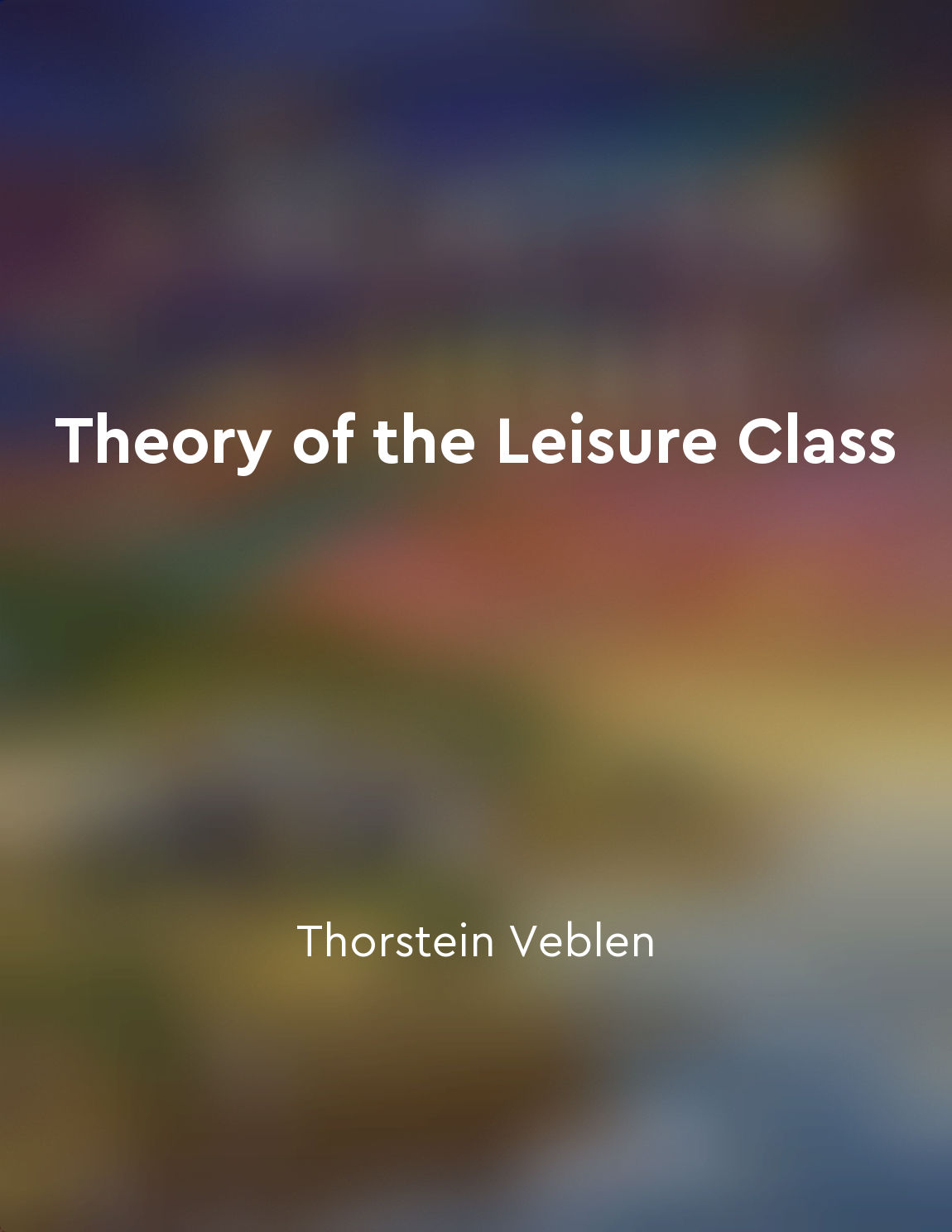Economic Theory and Social Behavior intersect from "summary" of Theory of the Leisure Class by Thorstein Veblen
The theory posited in this work seeks to elucidate the relationship between economic theory and social behavior. It is contended that these two spheres of human activity are inextricably intertwined and cannot be fully understood in isolation from one another. Indeed, economic theory is shaped and influenced by prevailing social norms, customs, and institutions. Conversely, social behavior is often driven by economic considerations and incentives. In examining the leisure class, it becomes apparent that their patterns of consumption and display are not merely individual idiosyncrasies, but rather are emblematic of larger societal dynamics. The conspicuous consumption and wasteful extravagance of the leisure class serve a social function, signaling status and reinforcing hierarchies within the social structure. These behaviors are not simply personal choices, but are shaped by social expectations and pressures. Moreover, the leisure class serves as a model for emulation by other social strata, leading to a ripple effect that permeates throughout society. This emulation of the leisure class is not driven solely by individual desires, but is also a product of societal norms and values that exalt wealth and status. Thus, economic theory and social behavior intersect in complex ways, influencing and shaping each other in a continuous feedback loop. It is argued that the leisure class is not a static entity, but rather a dynamic product of social and economic forces. As such, changes in economic conditions or shifts in social norms can lead to transformations in the behavior and consumption patterns of the leisure class. Conversely, the behavior of the leisure class can also impact economic outcomes and social dynamics, creating a web of interdependencies that defy simplistic explanations.- The theory expounded in this work seeks to illuminate the nuanced and multifaceted relationship between economic theory and social behavior. By recognizing the interplay between these two spheres, a more comprehensive understanding of human behavior and societal dynamics can be achieved. This theory challenges traditional dichotomies between economics and sociology, demonstrating that these disciplines are not mutually exclusive but rather deeply intertwined in the fabric of human society.


